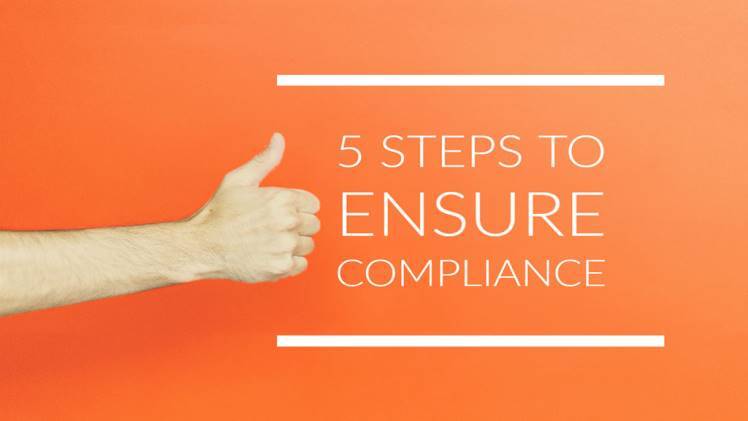
Trying to navigate the complicated world of international trade can be tough, especially when you’re trying to comply with export regulations. Failure to comply can lead to financial losses, legal issues, and reputational damage for your business. Working with a reputable Exporter of Record service provider ensures compliance at every step. We’ll cover how to ensure compliance with the Exporter of Record service, including the benefits, challenges, and best practices you can use to succeed.
What you need to know about Exporter of Record Services
One of the crucial aspects of exporting is the Exporter of Record Service. This is done by a third-party provider who makes sure all rules and regulations are followed for exporting goods and services. EOR services handle all paperwork, paperwork, and compliance requirements on the exporter’s behalf in the destination country. In addition, the EOR service handles any liabilities that may arise during the export process.
The importance of compliance in exporting
If you don’t follow regulations and requirements, you’ll end up with expensive penalties and legal problems. You need to stay compliant for your business to protect it, keep your reputation, and avoid penalties and legal issues. Non-compliance can hurt your business financially, reputationally, and operationally.
Here’s how to make sure you’re compliant with Exporter of Records Service
Compliance with Exporter of Record Service can be hard, because of the complex regulations. Here’s how to make sure your company’s in compliance:
- Stay Up-to-Date with the Regulations:
Keep an eye out for updates to export regulations and requirements. Anything that might affect your export process needs to be taken care of. - Partner with a Reliable EOR Service Provider:
Choose a service provider who can handle all your export needs with efficiency and accuracy, like a reliable and experienced Exporter of Record. Providing services to a country should require a team of experts who know all the rules and regulations. - Make sure you have a compliance program:
It’s important to have a robust compliance program in place to make sure you’re meeting all regulations and requirements. It should include regular audits, employee training, and advanced technologies and tools. - Make sure everything is documented:
You’ll be able to demonstrate your commitment to compliance and provide evidence in case of an audit or investigation if you keep detailed records.
Compliance with the Exporter of Records Service has lots of benefits
There are many benefits to complying with the Exporter of Records Service, including:
- By complying with all regulations and requirements, you’ll reduce the risk of penalties and legal issues.
- By outsourcing the export process to an experienced third party, you save time and resources.
- Offering real-time tracking and visibility into export progress so you can stay on top of things.
- Using advanced technology and tools to make the export process more efficient and accurate.
Risks of not complying with Exporter of Records Service
There are various risks your business faces if you don’t comply with Exporter of Records Service, which include:
-
- Financial Losses:
It’s bad for business when you don’t comply with export regulations. You could get fines, penalties, and other financial losses. - Legal Issues:
In the event of a violation of export regulations, your business could face lawsuits, injunctions, and other legal actions that harm its reputation. - Damage to your reputation:
A non-compliant business can damage its reputation and relationships with customers, suppliers, and other stakeholders. - Disruptions in operations:
It can cause operational problems like delays in shipping, customs clearance, and other problems that stop you from getting your products to customers.
- Financial Losses:
Compliance Checklist for Exports
The following export compliance checklist will help you comply with Exporter of Record Service:
-
-
-
- Decide what export classification you need:
You’ll need to classify your product based on its technical characteristics, intended use, and country of destination. - Check the export restrictions:
You should check if your product has any export restrictions, including licensing requirements, sanctions, and other limitations. - Get your export license:
Make sure your product has the right export licenses and permits. - Check for restricted parties:
Government restricted party lists should be checked by all parties involved in the export process, including suppliers, customers, and other intermediaries. - Make sure you’ve done your due diligence:
Check everyone involved in the export process to see if they’re reliable and trustworthy, including verifying their identities and backgrounds. - Get the documentation ready:
Comply with export regulations and requirements by preparing all necessary documentation, including export declarations, bills of lading, and commercial invoices. - Make sure the export process is going smoothly:
Make sure all regulations and requirements are met during the export process, including shipping and customs clearance. - Keeping track of things:
Document all export activities, including any documents related to the export process, for at least five years.
- Decide what export classification you need:
Final Note
For your business to succeed in international trade, you have to be in compliance with the Exporter of Record Service. Financial losses, legal issues, reputation damage, and operational disruptions can result from noncompliance. Make sure you’re compliant by using the export compliance checklist, using an Exporter of Record service provider, and implementing regular audits and employee training. One Union Solutions ensures a seamless and risk-free experience for our clients by providing a trusted and reliable Exporter of Record service.
-
-



